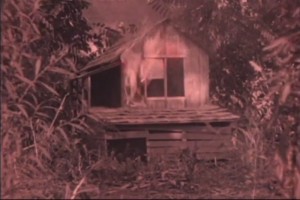
"Supernatural thriller made by a teenage girl." Filmpreservation.org
"15 year old Mary is bored. With her parents permission she writes her chum Martha to come for summer vacation and they will make a movie. In the meantime two convicts escape from the nearby prison. To frighten the girls away the convicts decide to play ghosts. Film ends with posse, capture and hand colored inferno." Oregon Historical Society.
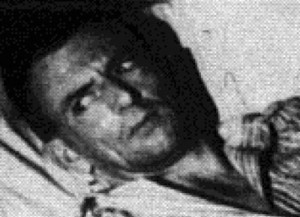
"Something has induced the man in the film into a nightmare accompanied by wind-blown Venetian slats, moving windows, turning door knobs, footsteps, and music to stir the emotions - all to the punishment of the victim and the excitement of the viewing audience" PSA Journal, Oct. 1962, 35
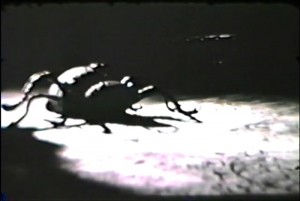
Horror film involving a family, a lodger, and the lodger's spiders.
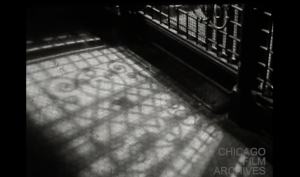
"A fickle (or is it haunted?!) elevator disrupts a man’s daily routine, ending tragically in a stairwell." Chicago Film Archives
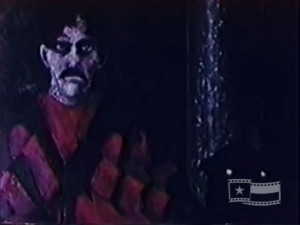
"Manos: The Hands of Fate is a 1966 low-budget horror film written, directed, and produced by El Paso native Harold P. Warren, who also starred in the picture. In the film, a vacationing family gets lost while driving through the Texas desert. Stopping at a mysterious lodge for the night, the family finds themselves captives of a polygamous pagan cult. Shot in Warren’s home town and cast locally, the film premiered at the Capri Theater in downtown El Paso on November 15, 1966, and received largely negative reviews. As Betty Pierce of the El Paso Herald-Post wrote, “A real high point came when the wife, Diane Rystad, was compelled to deliver the line, ‘It’s getting dark,’ at the moment when the El Paso sunshine was glowing its brightest.” Widely recognized as one of the worst films ever made, the movie nevertheless achieved cult status after its appearance on the television comedy series Mystery Science Theater 3000 in 1993" Texas Archive of the Moving Image.
"'Ritual of the Dead,' is an old-fashioned thriller. The leading characters, that of the young man who murders rather promiscuously and the tattered mummy who returns to life seemingly to accuse the murderer after the latter has reason to believe he has safely escaped detection for his crimes are carried by the producer. The denouement of the story, which is just that we have here intimated, carries a real thrill" American Cinematographer, Jan. 1939, 16-17.
"Misdirected medical research, with gruesome and very exciting consequences, is the basis of the plot of The Scalpel, a photoplay produced by Richard H. Lyford, with the aid of a group of boys and girls of high school age. The plot is extravagant, the story is rather too filled with amazing action, and there is not a doubt that the melodrama as a whole puts too great a burden on the acting ability of a group of young people, even though they are surprisingly able. Nevertheless, here is an amateur made thriller of the Frankenstein and werwolf tradition that really sends chills chasing down your spine. The transition of the unfortunate doctor into a demented and abnormal creature involved makeup that is really astonishing outside of a theatrical studio. It can't be said that the handling of the episode is any less convincing in this amateur production than are the same undertakings in the best Hollywood films of this nature. In addition to being really successful in its object, this picture offers some excellent technical work and very competent management of a large cast." Movie Makers, Dec. 1936, 550-551.
"The visitor gains entrance to use the telephone. He is a person of strange power. Everything in the house feels and responds to his ghostly presence. After much apprehension, the housewife persuades him to leave; the spell is broken" PSA Journal, Nov. 1960, 42.
Total Pages: 2